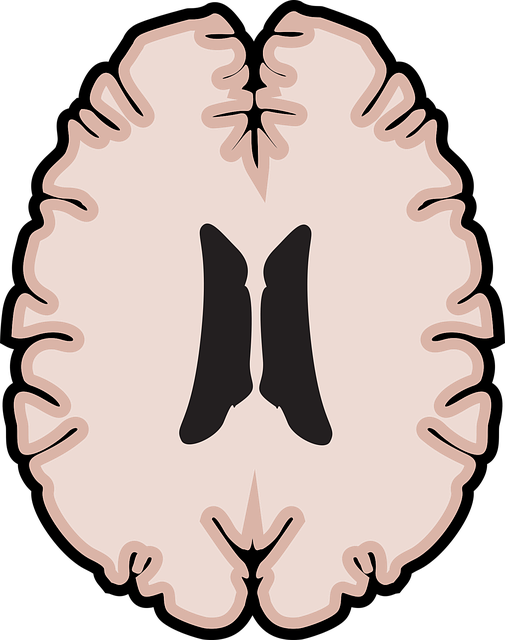Denver Acceptance and Commitment Therapy (ACT) offers a powerful, evidence-based approach to mental wellness coaching, focusing on acceptance, mindfulness, and value-aligned actions. Targeting diverse populations, ACT-informed programs aid stress/anxiety management, self-care, life transitions, emotional resilience, and tailored mental health education. Effective ACT curricula involve strategic learning objectives, practical exercises, cultural sensitivity training, and community outreach. Implementation includes podcast series for broader reach and continuous program evaluation using qualitative and quantitative methods to ensure alignment with at-risk communities' evolving needs.
Mental wellness coaching programs are gaining traction as powerful tools for personal growth. This article delves into the development of such programs, centered around Denver Acceptance and Commitment Therapy (ACT) – a therapeutic approach that encourages individuals to accept their experiences and commit to valued actions. We explore target populations, key curriculum design elements, evidence-based techniques, and evaluation strategies, providing insights into creating effective ACT-informed coaching programs. By understanding these components, coaches can facilitate meaningful change and enhance mental wellness.
- Understanding Denver Acceptance and Commitment Therapy (ACT): A Foundation for Coaching Programs
- Identifying Target Populations: Who Can Benefit from ACT-Informed Coaching?
- Designing Effective Coaching Curriculum: Key Components of an ACT Program
- Implementing Evidence-Based Techniques: Tools for Coaches to Facilitate Change
- Measuring Success and Impact: Evaluation Strategies for Mental Wellness Coaching Programs
Understanding Denver Acceptance and Commitment Therapy (ACT): A Foundation for Coaching Programs

Denver Acceptance and Commitment Therapy (ACT) offers a powerful framework for mental wellness coaching programs development. This therapeutic approach focuses on helping individuals accept their internal experiences, such as thoughts and emotions, while committing to actions that align with personal values. By fostering mindfulness and defusing the struggle against negative feelings, ACT promotes a more flexible and adaptive mindset, which is beneficial for managing stress and anxiety relief.
Incorporating Denver ACT into coaching programs can provide clients with practical tools for navigating challenges and cultivating mental wellness. For instance, coaches can guide participants through Mental Wellness Journaling Exercises, encouraging them to observe their thoughts and emotions without judgment. This practice helps individuals gain insights into their values and identifies behaviors that impede or support their well-being, fostering a more fulfilling and meaningful life.
Identifying Target Populations: Who Can Benefit from ACT-Informed Coaching?

Identifying target populations is a crucial step in developing effective mental wellness coaching programs, especially when utilizing evidence-based approaches like Denver Acceptance and Commitment Therapy (ACT). This therapeutic framework has shown remarkable benefits for various individuals struggling with mental health challenges. The ACT-informed coaching model can be particularly advantageous for those who:
1. Experience difficulty managing stress, anxiety, or depression but prefer a more flexible and personalized approach compared to traditional therapy.
2. Are open to learning self-care practices that foster psychological flexibility and well-being.
3. Seek support in navigating life transitions, setting meaningful goals, and cultivating a sense of purpose.
4. Desire to enhance their emotional resilience and learn effective coping strategies for managing difficult thoughts and feelings.
5. Benefit from empathy-building strategies within the coaching relationship, fostering a safe space for self-exploration.
6. Can benefit from tailored mental health education programs designed to empower individuals with knowledge about their minds and emotions.
Designing Effective Coaching Curriculum: Key Components of an ACT Program

When designing a curriculum for an effective Acceptance and Commitment Therapy (ACT) coaching program in Denver, several key components must be considered to ensure its success. The first step is to establish clear learning objectives that align with the core principles of ACT. This includes teaching individuals how to accept their emotions without judgment, cultivate mindfulness, and develop a stronger sense of self-awareness. The curriculum should also incorporate practical exercises and real-life scenarios to help clients apply these concepts in their daily lives.
Additionally, incorporating cultural sensitivity in mental healthcare practice is vital to create an inclusive environment where diverse populations feel understood and supported. This involves training coaches to be aware of unconscious biases and adapting their approaches to resonate with different backgrounds and experiences. Community outreach program implementation can further enhance the impact of ACT coaching by raising mental health awareness and making these services more accessible to underserved communities.
Implementing Evidence-Based Techniques: Tools for Coaches to Facilitate Change

Implementing Evidence-Based Techniques is a cornerstone for effective mental wellness coaching programs. Coaches play a vital role in facilitating change by utilizing tools drawn from established therapeutic approaches, such as Denver Acceptance and Commitment Therapy (ACT). This therapy encourages individuals to accept their experiences, cultivate awareness, and commit to actions that align with their values. By teaching clients techniques like mindfulness meditation and defusion skills, coaches enable them to manage stress, reduce anxiety, and improve overall well-being.
Moreover, mental wellness coaching can be enhanced through production of engaging Mental Wellness Podcast Series. These podcasts offer a medium to share valuable insights on self-care practices and mental health awareness, expanding the reach and impact of coaching beyond individual sessions. Integrating these evidence-based techniques and multimedia platforms empowers coaches to create transformative experiences, fostering lasting positive changes in their clients’ mental wellness journeys.
Measuring Success and Impact: Evaluation Strategies for Mental Wellness Coaching Programs

Evaluating the success and impact of mental wellness coaching programs is an essential step in ensuring their effectiveness and making informed improvements. This process involves employing strategic evaluation methods to measure both qualitative and quantitative aspects, providing valuable insights into the program’s reach and outcomes. One widely recognized approach, particularly relevant in Denver, is Acceptance and Commitment Therapy (ACT). ACT has gained prominence as a powerful tool for mental wellness coaching, offering a framework to help individuals accept their emotions while committing to valued actions. By implementing this therapy, coaches can track progress through regular assessments, client feedback, and changes in behavior patterns.
In the context of public awareness campaigns development and trauma support services, evaluating these programs is crucial to understanding their impact on at-risk populations. This involves setting clear goals and objectives, designing comprehensive surveys, and collecting data through various methods like interviews, focus groups, and pre/post-program assessments. Such strategies enable a holistic view of the program’s success, identifying areas for enhancement and ensuring that mental wellness coaching initiatives align with the evolving needs of communities they serve.
The development of mental wellness coaching programs, grounded in Denver Acceptance and Commitment Therapy (ACT), offers a promising approach to promoting well-being. By understanding ACT’s principles, identifying suitable populations, designing comprehensive curricula, and employing evidence-based techniques, coaches can create impactful interventions. Measuring success through rigorous evaluation ensures these programs deliver tangible benefits, ultimately enhancing the lives of those seeking support. This structured framework facilitates effective coaching, making ACT-informed initiatives a valuable resource for fostering mental resilience and personal growth.














